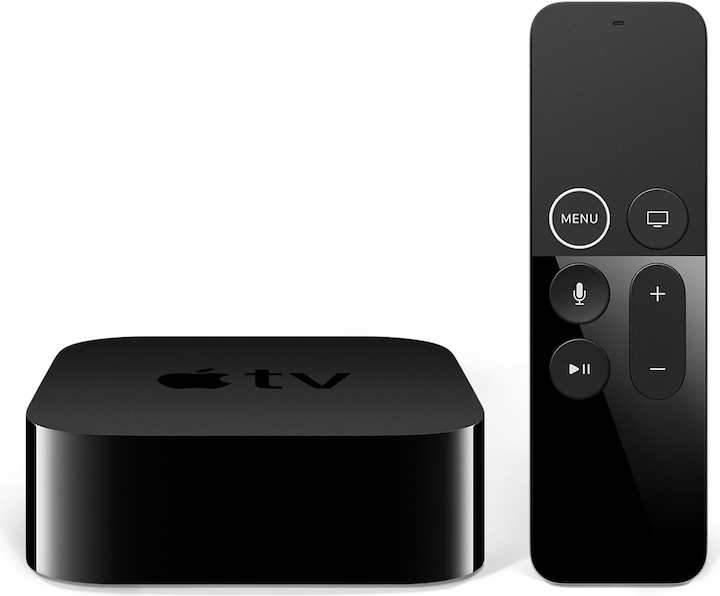

Smart TV vs. privacy: How Apple and Samsung share data
The deal between Apple and Samsung has been finalised: Apple TV and iTunes will be supported on Samsung televisions from spring 2019. This raises one question in particular: Are Apple users at risk of losing their privacy?
Samsung announced at a semi-public press conference at CES 2019 in Las Vegas that iTunes and Apple TV will be running on all of its newer smart TVs from spring 2019. This comes as a surprise, as both Samsung and Apple are notorious mavericks when it comes to software.
Now, however, the two giants are joining forces. Via Bixby - Samsung's proprietary voice assistant - you will be able to access Apple TV, Airplay and iTunes directly.
The big question: who is listening to what and where?
A look at the corporate landscape
Samsung has been relying on Tizen, an operating system based on the Linux kernel that is not dissimilar to Android, for years. Although a number of manufacturers and suppliers belong to the Tizen Association - including Fujitsu, Huawei, NEC Casio, Orange, Sprint and Vodafone - the software only runs on around 20 Samsung devices to date. The South Korean company's televisions will be supplied with Apple integration from the 2018 model year.
Apple, meanwhile, relies on proprietary operating systems. For example, macOS for computers, watchOS for smartwatches, tvOS for Apple TV and iOS for iPhones and iPads. Although these are more fully compatible with each other than any other ecosystem, they are generally only fully usable and accessible for Apple users with Apple devices.
Now Samsung obviously has a team somewhere that is working on the integration of Apple products. Or Apple is doing this and has a Tizen team somewhere in Cupertino. How exactly this works and who develops what is still unclear at the moment. However, it is unlikely that Apple will release code from its own organisation.
The question of data espionage
Suppliers of software and hardware solutions usually record user data. This is usually metadata which, only in combination with other data, makes it possible to identify the user beyond doubt or allows information to flow to third parties. For example, how a TV viewer perceives the 8K upscaling on their Samsung TV, or whether they watch more cartoons than action films. These questions are then used to offer the majority of users an even better technology experience. And sometimes also to make some money by selling the data. It's all in the terms and conditions.
Apple, on the other hand, has never been involved in this. Data is analysed, but as far as we know, the data is not sold on or passed on, even if it were a billion-dollar business. In Switzerland, Apple does very little advertising with this, but on the way to the centre of the American city of Las Vegas, video producer Stephanie Tresch and I pass a billboard every day that reads "What happens on your iPhone stays on your iPhone". Apple takes the privacy of its users very seriously and rarely or never compromises. Even when the government of a nation comes along.
Therefore, the question of whether the smart TV, which is happy to collect data for analysis purposes, can now access the data of a privacy-loving corporation is a legitimate one.
The question was answered by journalist Nilay Patels in an article for the online tech mag The Verge. This is despite the fact that Apple rarely answers questions from journalists.
Apple tells me that Samsung will not be able to track usage inside the iTunes Movies & TV Shows app. But the press release says iTunes will work with Samsung's Bixby assistant, search, and guide features, so we'll have to see how what data powers those things when it ships in the spring.
Where Samsung can listen in
The method used by Apple and Samsung is clever. Because even if Samsung cannot access the data in Apple's software, commands and other things are still channelled through Samsung products.

In other words, if you tell Bixby to play the episode "Trouble with Tribbles" from the first series in the "Star Trek" universe - known in this country as "Starship Enterprise" - via Apple TV, you say "Bixby, run "Trouble with Tribbles"". Bixby listens, analyses the command, searches for the API - in other words, the interface - to Apple TV and passes the interpreted command to Apple TV, which then plays the episode.
This intermediate step of the API call is theoretically a place where Samsung could listen in and collect metadata without having access to Apple TV's app data. Whether the company does this or not is still unknown to date.
Another theoretical possibility for data collection is that the Samsung TV is supplied with metadata about "Trouble with Tribbles" by Apple TV, because somewhere on the screen there will probably be an overlay with the series name and the episode title as well as other data.
How you can escape this
If you have a Samsung TV but don't want Samsung to listen in, there's only one way around it, apart from selling the TV. You need Apple peripherals. In other words, an Apple TV box.
Apple TV supports Siri and Siri is embedded in Apple's ecosystem. Therefore, it does not record anything that Apple TV would not also record for analysis purposes, with the exception of your voice pattern.
How exactly the data is collected and whether and how Samsung collects data will only become clear in the spring. What is clear, however, is that Samsung will most likely make a certain profit from the deal. There is no question about that. But the question is this: Where and how do the corporations profit and what do we users need to watch out for?
You can find all articles on CES 2019 here.
Journalist. Author. Hacker. A storyteller searching for boundaries, secrets and taboos – putting the world to paper. Not because I can but because I can’t not.
Interesting facts about products, behind-the-scenes looks at manufacturers and deep-dives on interesting people.
Show all




